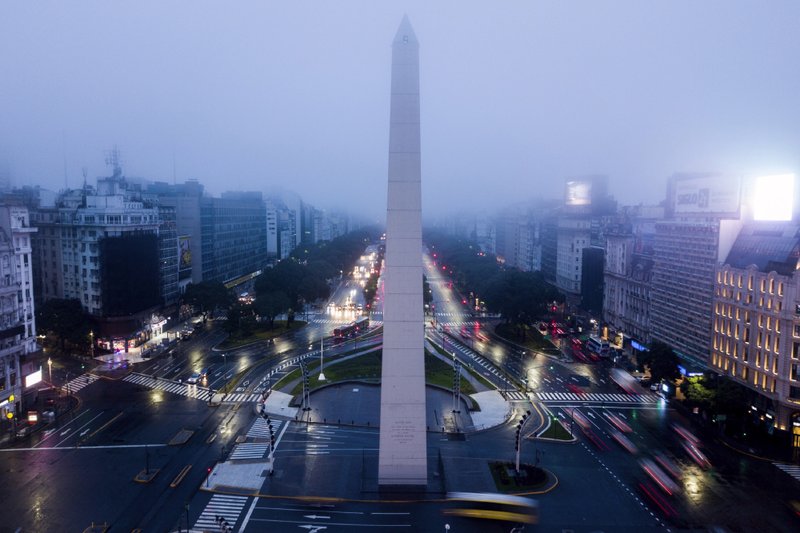BUENOS AIRES, Argentina -- The lights were back on Monday across Argentina, Uruguay and Paraguay after a blackout that affected tens of millions people, but authorities remained in the dark about the cause of the grid collapse and continued to calculate the economic damage.
Argentine President Mauricio Macri promised a thorough investigation into what he called an "unprecedented" electric power failure, one that raised questions about flaws in South America's power grid, which connects many of the region's largest countries.
Energy officials said the results of the investigation would be available in 10 to 15 days, and they could not immediately provide details on the economic impact of the power failure, which happened on a Sunday, a day before a national holiday in Argentina.
"From zero to 10, there is zero chance that this will repeat itself. It can't repeat itself," Argentine Energy Secretary Gustavo Lopetegui said Monday.
The blackout originated at an electricity transmission point between the power stations at Argentina's Yacyreta dam and Salto Grande in the country's northeast "when the system was getting too much power," Lopetegui said. Although these types of failures have happened in other countries, he said a chain of events took place that caused a total disruption.
"This is an extraordinary event that should have never happened," he said. "It's very serious. We can't leave the whole country all of a sudden without electricity."
He did not discount the possibility of a cyberattack, but he said it was unlikely.
The collapse began about 7 a.m. Sunday, with Argentina's population of 44 million and residents of neighboring Uruguay and some parts of Paraguay waking up to Father's Day in the dark.
Power was restored by Sunday night. But the blackout raised questions about the vulnerability of Argentina's power system at a time when the country is going through a deep economic crisis with soaring inflation, a tumbling of the currency and a spike in utility bills fueled by Macri's decision to cut subsidies as part of his austerity measures.
The conservative leader has seen his popularity ratings plunge during the crisis. Argentines have demonstrated against the rise in utility bills, and the blackout could trigger more such protests against Macri's government just as he seeks re-election in October.
"The country is already in a weird moment, and then you wake up and can't see anything," said Julieta Dodda, 27, who works in sales at a clothing store in downtown Buenos Aires. "Many people were going to meet for lunch to celebrate the day. I saw many online who joked: 'Happy Father's Day from Edesur and Edenor'" -- a reference to Argentina's electricity companies.
After Sunday's blackout, Macri's rivals jumped at the chance to criticize the conservative leader, who came to power in 2015 in part by promising to reinvest in the grid.
"Millions of people who have had to pay astronomical rates for electricity to benefit those in power are still waiting for the energy to return to their homes," Alberto Fernandez, a center-left presidential candidate who is seen as Macri's top rival, said on Twitter. "Just days ago, they were boasting about 'exporting energy.'" He added a recent tweet from Macri in which the president said: "From darkness to exporting energy."
An Argentine independent energy expert said that systemic operational and design errors played a role in the grid's collapse.
"A localized failure like the one that occurred should be isolated by the same system," said Raul Bertero, president of the Center for the Study of Energy Regulatory Activity in Argentina. "The problem is known, and technology and studies [exist] to avoid it."
Information for this article was contributed by Almudena Calatrava, Patricia Luna and Natalie Schachar of The Associated Press.
A Section on 06/18/2019
